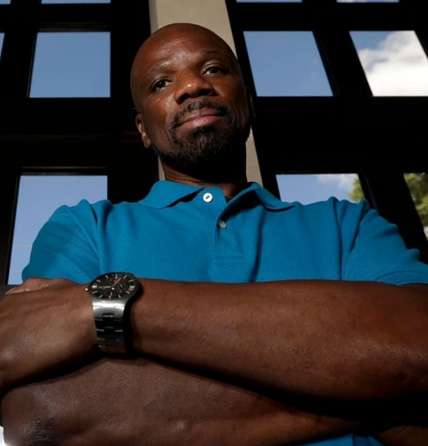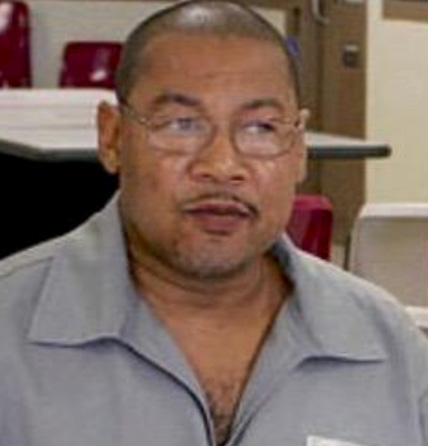Memo re commutations of death row prisoners by Republican governors with a focus on former Ohio governor, John Kasich.
After the federal district court denied relief, Amrine sought habeas relief from the Missouri Supreme Court, arguing that application of the manifest injustice standard to his actual innocence claim entitled him to habeas relief despite having had a constitutionally adequate trial and sentencing.
Joseph Amrine was convicted of the 1985 murder of fellow inmate, Gary Barber. At trial, the state relied primarily on the testimony of three other inmates: Randy Ferguson, Terry Russell, and Jerry Poe. Ferguson and Poe both claimed to have witnessed Amrine stab Barber. Russell testified he knew of hostile feelings between Barber and Amrine and heard Amrine threaten Barber a week earlier. During a state post-conviction hearing, both Ferguson and Russell recanted their trial testimony, and explained how the prosecution and correctional officers intimidated them into giving false testimony. The district court denied federal habeas relief and the request for an evidentiary hearing, finding insufficient evidence of actual innocence with Poe’s testimony remaining undisputed. After Amrine filed an appeal, his new counsel located and interviewed Poe, obtaining an affidavit in which Poe recanted his testimony as well.
In 1991, Faye Copeland was convicted of five counts of first degree murder as an accomplice to her husband Ray in a fraudulent check and cattle-buying scheme that led to the shooting death of five homeless men. She received four death sentences and one sentence of life without the possibility of parole for the murders. During the penalty phase of Copeland's trial, the prosecutor began his closing argument by referencing recent gang violence in Los Angeles. He continued by saying these turf wars made his "blood boil" and made him "weep and cry" because it was "the same thing, right here in our backyards." In federal habeas proceedings, Copeland claimed that the prosecutor’s closing arguments, as well as trial counsel’s failure to object to the arguments, deprived her of a fair sentencing trial. The district court and Eighth Circuit agreed and overturned Copeland’s death sentences.
Ernest Johnson was convicted of three counts of first degree murder in the 1994 deaths of Mary Bratcher, Fred Jones, and Mabel Scruggs, who were killed in the convenience store where they worked. Mr. Johnson received three death sentences, which were vacated on direct appeal. After a second penalty phase trial, Mr. Johnson was again sentenced to death and those sentences were affirmed on direct appeal in 2000. In postconviction proceedings, Mr. Johnson argued that defense counsel was deficient for failing to present evidence of his mental retardation. The Supreme Court of Missouri again vacated his sentences and remanded for a new penalty phase hearing.
Ernest Johnson was convicted of three counts of first degree murder in the 1994 deaths of Mary Bratcher, Fred Jones, and Mabel Scruggs, who were killed in the convenience store where they worked. Mr. Johnson received three death sentences for each of the three convictions. The Missouri Supreme Court overturned the circuit court’s denial of sentencing relief in Rule 29.15 proceedings and ordered a new penalty phase trial.
Clemency: Darrell Mease was convicted and sentenced to death for the 1988 killing of Lloyd Lawrence, Frankie Lawrence, and William Lawrence. Missouri originally scheduled Mease to be executed on the same day the Pope was scheduled to visit St. Louis on January 27, 1999. After a personal appeal by Pope John Paul II, Governor Mel Carnahan commuted Mr. Mease’s death sentence to a life sentence without parole.
Clemency: A week before Bobby Lewis Shaw’s scheduled execution in 1993, Governor Mel Carnahan commuted his death sentence to a sentence of life without parole. Shaw was convicted of murdering a prison guard in 1979, and had exhausted his appeals. After a two-day competency hearing, Circuit Judge Robert L. Carr ruled that Shaw was competent to be executed because he “obeys spoken instructions, he reads, watches television, and plays mind games such as cards.” Governor Carnahan, however, decided that Shaw’s death sentence was “fundamentally unfair” because the jury that sentenced him to death had not heard testimony about his brain injury or mental condition. Governor Carnahan felt there was “little doubt” that Shaw was mentally unfit for execution. Carnahan cited the testimony of doctors who said Shaw suffered from borderline mental retardation, mental illness, and probable brain damage. Doctors that examined Shaw since his conviction said he probably suffered brain damage when he was struck in the head by a brick at the age of 9. Shaw died of natural causes in 2000.
Prosecutorial Misconduct, Closing Arguments. Bernard Rhodes was convicted and sentenced to death for the 1997 murder of Dorothy Martin during a home robbery. During closing arguments at the penalty phase, the prosecutor demonstrated how the victim was murdered while asking the jury to imagine themselves as the victim, experiencing every detail of the crime. Arguments for imposition of the death penalty that are “designed to cause the jury to abandon reason in favor of passion are improper.” State v. Taylor, 944 S.W.2d 925, 937 (Mo. banc 1997).
Ineffective Assistance of Counsel, Penalty Phase: Brandon Hutchison was convicted of two counts of first-degree murder and sentenced to death for his part in the 1995 killing of Brian and Ronald Yates. Hutchison's counsel had never tried a capital case before and had no experience defending a murder case. While they prepared extensively for the guilt portion of the trial, defense counsel spent virtually no time preparing for the penalty phase.
Andrew Lyons was convicted of two counts of murder and sentenced to death on each count for the killing of his estranged girlfriend, Bridgette Harris, and her mother, Evelyn Sparks. In 2007, as required by Ring v. Arizona, 536 U.S. 584 (2002), the Missouri Supreme Court set aside the death sentence for one of the murders (Evelyn Sparks) because the jury failed to set out findings necessary to impose the death penalty. Regarding the second death sentence (Bridgette Harris), Lyons filed a petition in mandamus, claiming to be mentally retarded and therefore ineligible to be executed.

Isa was convicted and sentenced to death, along with her husband, in the stabbing death of their 16-year-old daughter Palestina Isa. On direct appeal, the Missouri Supreme Court overturned her death sentence because of errors in the penalty phase instruction on aggravating circumstances.

Griffin was convicted and sentenced to death for the 1983 murder of inmate James Bausely when they were incarcerated at the Moberly Training Center for Men. On direct appeal, the Missouri Supreme Court reversed his sentence of death because the State admitted a record of conviction for a different person named Reginald Griffin.

Clemmons was convicted and sentenced to death in 1987 for killing Henry Johnson, a prisoner at the Missouri State Penitentiary, when Clemmons was incarcerated there. After granting rehearing by panel, the Eighth Circuit overturned Clemmons’ conviction and death sentence.
